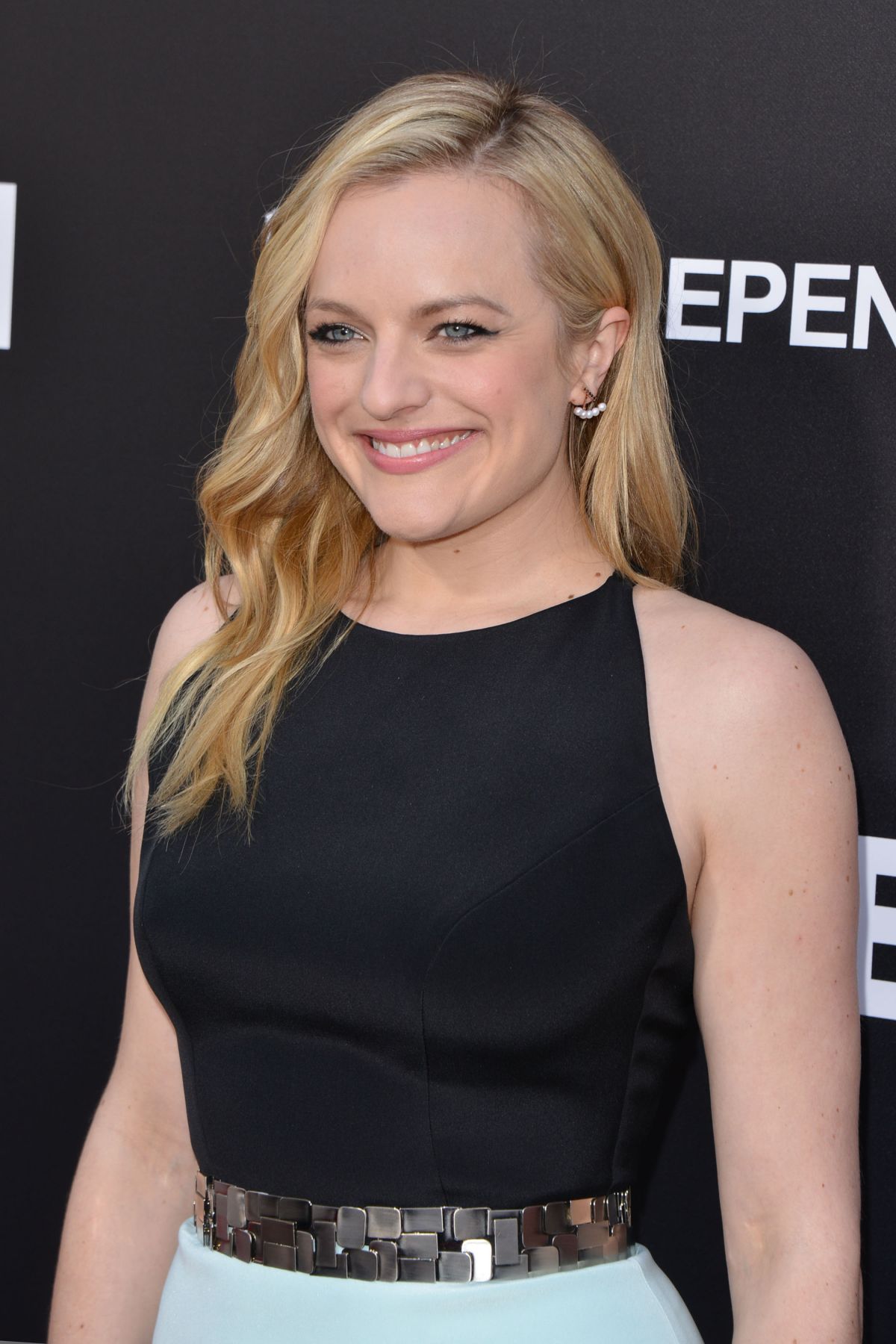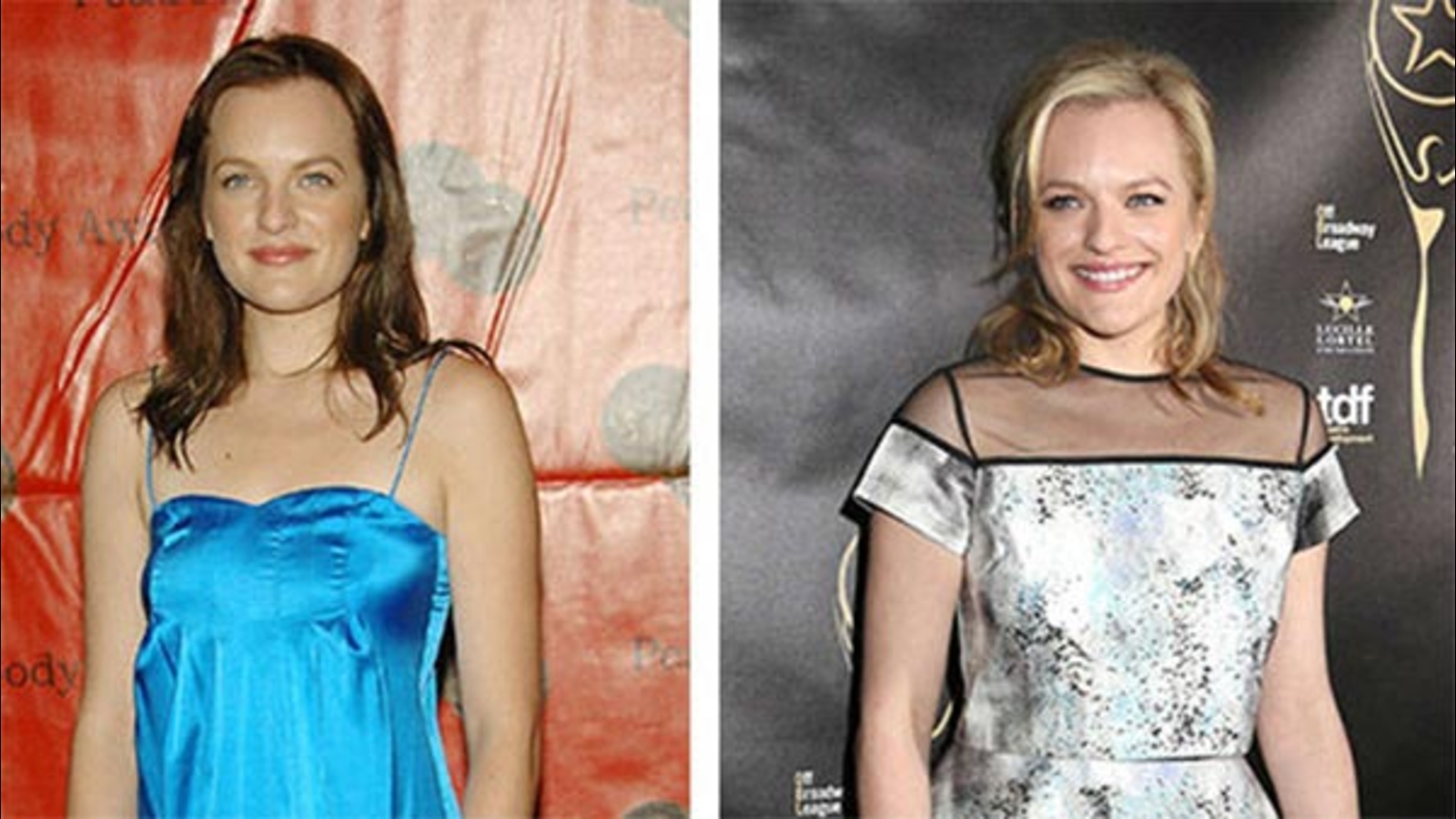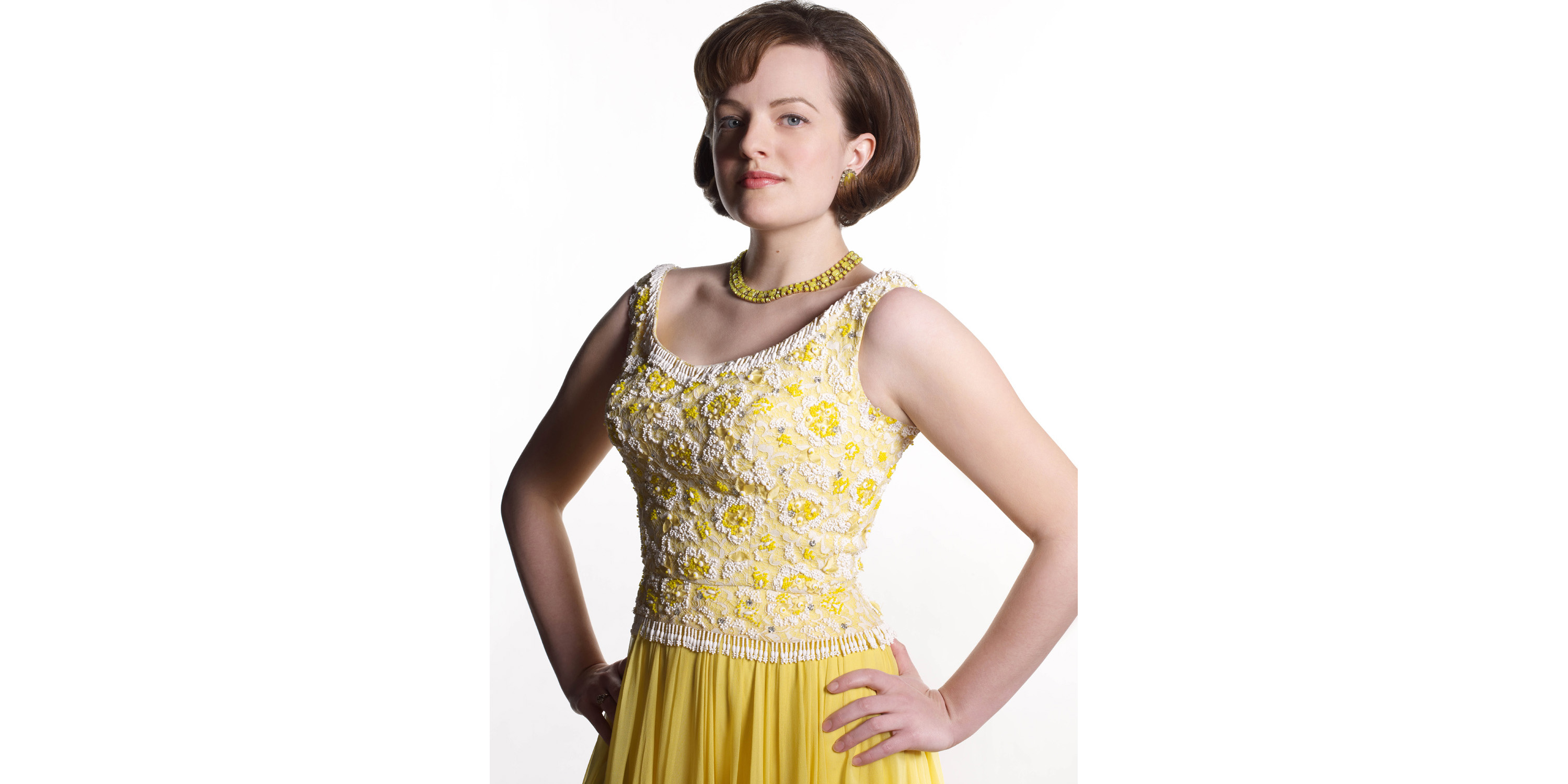Have you ever found yourself thinking about the rich tapestry of characters in Mad Men, wondering about those who might have played smaller, yet still meaningful, parts? It's a show, you know, that truly captured a moment in time, showing us the complexities of life in the 1960s, particularly within the world of advertising. People often remember the main players, naturally, but sometimes a name just sticks with you, even if it's not tied to a central figure.
So, you might be searching for "Elizabeth Mad Men," perhaps trying to recall a specific woman, a secretary, or maybe a client who bore that name. It's a very common name, after all, and in a show so full of faces, it's easy for some to blend into the background, yet still spark curiosity. We're here to explore this very idea, looking at how the name "Elizabeth" might resonate within the show's world, and actually, how it connects to some very real roles in public life, too.
This article will, in a way, take a little journey, not just through the fictional halls of Sterling Cooper, but also into the real, everyday responsibilities that shaped communities during that era and even today. We will consider, you know, how the idea of "Elizabeth" can bring to mind different kinds of contributions, both seen and unseen, in a period of such big change. It's really quite interesting to think about.
Table of Contents
- The Name Elizabeth and Mad Men's World
- Real-World "Elizabeths" and Their Roles
- Women in Professional Roles: A Mad Men Era Reflection
- Frequently Asked Questions About Elizabeth and Mad Men
- Looking Back and Looking Forward
The Name Elizabeth and Mad Men's World
Is There an "Elizabeth" in Mad Men?
When someone searches for "elizabeth mad men," it's usually because they're trying to place a specific character, isn't it? The truth is, while the show featured many women, some with quite memorable names like Betty, Peggy, Joan, and Megan, a prominent, central character named Elizabeth doesn't really come to mind for most viewers. There might have been minor characters, perhaps a secretary or a date, with that name, but no one who truly shaped the main storylines in a big way. It's interesting how some names just resonate, even if they're not attached to a star.
This doesn't mean the name "Elizabeth" is insignificant, though. Quite the opposite, actually. It's a classic name, carrying a sense of tradition and strength, and it was certainly a very common name during the 1960s. So, while you might not pinpoint a "main" Elizabeth from the show, the idea of a woman named Elizabeth fits perfectly into the era that Mad Men so carefully portrayed. It's a name that, in a way, feels like it should be there, even if it isn't front and center.
The absence of a major "Elizabeth" character, you know, actually highlights something else. It reminds us that for every main character we follow, there were countless other individuals, often women, working in various capacities, both seen and unseen, during that time. They were, perhaps, just as vital to the fabric of society, performing important roles that kept things running, even if they weren't getting the spotlight. That's a pretty powerful thought, I think.
The Significance of Names in the Mad Men Era
Names in Mad Men, quite honestly, often carry a certain weight, don't they? Think of "Don Draper," a name that evokes a particular kind of American ideal, or "Peggy Olson," which sounds, you know, relatable and grounded. The names chosen for the characters often reflect their personalities, their aspirations, or even their place in society during that time. It's a very subtle touch, but it really adds to the depth of the show.
The name "Elizabeth," too, has its own particular feel. It's a name that, you know, has been popular for centuries, suggesting a kind of timeless elegance and reliability. In the context of the 1960s, an "Elizabeth" might have been seen as someone steady, someone dependable, perhaps even someone with a quiet strength. It's a name that could belong to a homemaker, a teacher, a nurse, or even, as we'll see, someone in public service or engineering.
So, even if "elizabeth mad men" doesn't immediately bring a specific character to mind, the name itself helps us think about the broader population of women living and working during that era. They were, in a way, the backbone of many communities, doing important work that often went unsung. It's a good reminder that history is made not just by the famous, but by everyone, really.
Real-World "Elizabeths" and Their Roles
While Mad Men gives us a fictionalized look at the past, it's also worth considering how the name "Elizabeth" appears in real-world contexts, particularly in roles that might have existed, in some form, during the Mad Men era. The information provided, you know, actually mentions two individuals named Elizabeth who hold significant positions in public and private sectors. These aren't characters from the show, to be clear, but their roles give us a glimpse into the kinds of contributions women named Elizabeth, or any woman for that matter, make in shaping our communities.
Let's take a closer look at these real-world examples. They help us, in a way, broaden our perspective beyond the advertising world of Mad Men and appreciate the diverse contributions of women in different fields. It's quite fascinating, actually, to see how these roles connect to the very foundations of how our towns and cities function, both then and now.
Elizabeth Rourke: A Glimpse into Public Service
The provided text speaks of Elizabeth Rourke, who served as a Town Accountant and later as Director of Finance. These are very important roles, you know, dealing with the fiscal health of a community. A town accountant is responsible for, among other things, keeping track of all the money coming in and going out, making sure everything is recorded properly and that public funds are used wisely. It's a job that requires a lot of precision and trust, basically.
Then, as Director of Finance, Elizabeth Rourke would have had an even broader scope of responsibility. This role often involves managing the entire financial operations of a municipality, from budgeting to long-term financial planning. It's a position that, in a way, truly shapes the future of a town, ensuring its stability and ability to provide services to its residents. Such a role, you know, demands a deep understanding of numbers and a strong commitment to public accountability.
The text also mentions her role as a veterans' agent and director of veterans' services. This adds another layer to her public service, showing a commitment to supporting those who have served. It's a very compassionate aspect of her work, providing assistance and resources to veterans in the community. So, you see, Elizabeth Rourke's roles touch upon various vital aspects of local governance, reflecting a dedication to both financial integrity and community welfare. It's quite a comprehensive set of responsibilities, honestly.
Real-World Elizabeths: Public Service Profile
| Name | Elizabeth Rourke |
| Role(s) Mentioned | Town Accountant, Director of Finance, Veterans' Agent and Director of Veterans' Services |
| Date of Appointment/Mention | November 14, 2020 (for Director of Finance/Town Accountant) |
| Associated Location | Town of North Reading, MA |
| Key Responsibilities (from text) | Measuring the value of real and personal property, ensuring fair and equitable share of taxes, financial oversight. |
The Role of Assessors and Property Value
The provided text makes a point about assessors being "responsible for measuring the value of real and personal property and insuring that owners of such property all pay their fair and equitable share." This, you know, is a fundamental part of how local governments fund themselves. It's not just about collecting taxes, but about making sure the system is just and balanced for everyone. This work, in a way, underpins all the services a town provides.
Property value assessments, like those mentioned for North Reading, FY22, are really important documents. They provide the basis for tax purposes, affecting every property owner in the community. The transparency of these public disclosure values is, you know, quite key for maintaining public trust. It's a detailed process that demands careful attention to detail and a commitment to fairness, basically.
So, someone in Elizabeth Rourke's position, as a finance director, would be deeply involved in overseeing these processes, ensuring that they are carried out correctly and ethically. It's a critical link between the public's property and the funding of essential services, like schools, roads, and public safety. This work, you see, keeps the wheels of local government turning smoothly, very much like a well-oiled machine.
Financial Oversight and Public Trust
The mention of Elizabeth Rourke's roles as Town Accountant and Director of Finance, appointed on November 14, 2020, really highlights the ongoing need for strong financial stewardship in any community. These positions are, in a way, the guardians of public funds, making sure that every dollar is accounted for and spent responsibly. It's a trust, you know, that communities place in these individuals.
Ensuring that owners pay their "fair and equitable share" is also a big part of this. It's about balancing the needs of the community with the obligations of its residents. This kind of financial oversight, you know, helps to maintain stability and allows for planning for the future, whether that's for new projects or ongoing services. It's a continuous effort to keep things balanced and fair, honestly.
So, the work done by people like Elizabeth Rourke is, you know, quite vital for the health of a town. It's not always the most visible work, but it's absolutely essential for ensuring that public resources are managed effectively and that the community can thrive. It’s about, basically, keeping things transparent and accountable for everyone.
Elizabeth Wallis: Engineering and Development
Another Elizabeth mentioned in the provided text is Elizabeth Wallis of Hayes Engineering. She was, you know, in attendance at a meeting, refreshing everyone's minds about a proposal to construct a 40x25 detached garage. This tells us about a different kind of professional role, one in engineering and community development. It's a field that, in a way, shapes the physical landscape of our towns.
Hayes Engineering, presumably, is a firm involved in various construction and development projects. Elizabeth Wallis's presence and her role in presenting a proposal suggest her involvement in the practical aspects of building and planning. This kind of work, you know, requires a lot of technical knowledge and an understanding of regulations and community needs. It's a hands-on field that makes tangible changes to the environment around us.
The proposal for a detached garage, while seemingly small, is actually part of a larger process of property development and land use. These kinds of projects, you know, require careful planning, adherence to codes, and often, public discussion. Elizabeth Wallis's role in this shows her as a key player in the process, someone who understands the specifics of construction and how it fits into the broader community plan. It's a very practical and impactful contribution, I think.
Real-World Elizabeths: Engineering Profile
| Name | Elizabeth Wallis |
| Role(s) Mentioned | Representative of Hayes Engineering |
| Context | Attended a meeting, presented proposal for 40x25 detached garage |
| Associated Firm | Hayes Engineering |
| Key Responsibilities (from text) | Presenting engineering proposals, refreshing minds on project details. |
Shaping Community Spaces
The work of engineers, like Elizabeth Wallis, is, you know, quite fundamental to how our communities grow and function. Every building, every road, every piece of infrastructure needs careful planning and design. The proposal for a detached garage, even if it's a small project, represents a piece of that larger puzzle. It's about, basically, how we use and develop land within our neighborhoods.
When Elizabeth Wallis was refreshing everyone's minds about the proposal, it highlights the collaborative nature of such projects. There are, you know, often public meetings, discussions with town officials, and reviews to ensure that new constructions fit within existing plans and regulations. This interaction is, in a way, how communities ensure responsible development. It's a process that involves many different perspectives, honestly.
So, her role is not just about the technical drawings, but also about communication and presenting information clearly to various stakeholders. This is a vital skill in engineering, making sure that everyone understands the scope and impact of a project. It's about, you know, bringing ideas from paper into the real world, shaping the very places we live and work.
The Engineering Perspective
Engineers, like Elizabeth Wallis, bring a very specific and valuable perspective to community development. They understand the practicalities of construction, the structural integrity of buildings, and the logistics of putting things together. This technical knowledge is, you know, absolutely essential for any kind of building project, big or small. It's about making sure things are safe and functional, basically.
The fact that she was there to "refresh everyone's minds" suggests that these projects can be complex, with many details that need to be kept straight. It's a testament to the meticulous planning that goes into even a garage construction. This kind of work, you know, ensures that buildings are not just aesthetically pleasing but also structurally sound and compliant with all necessary codes. It's a very responsible job, really.
So, while Mad Men focuses on the creative and persuasive aspects of advertising, these real-world "Elizabeths" show us the equally important, yet perhaps less glamorous, work of building and maintaining the physical and financial structures of our society. Their contributions are, in a way, the foundations upon which communities stand, both then and now. It's quite a compelling thought, I think.
Women in Professional Roles: A Mad Men Era Reflection
Mad Men, of course, famously portrayed women in the workplace during the 1960s, mostly within the advertising industry. We saw Peggy Olson break barriers, Joan Holloway manage the office, and Betty Draper navigate societal expectations. Yet, the show, you know, only gave us a glimpse into a specific slice of professional life. The real-world "Elizabeths" we've discussed, Elizabeth Rourke and Elizabeth Wallis, actually help us broaden that picture, showing women in different, equally vital, professional roles during that broader era.
It's important to remember that while the 1960s were a time of significant social change, women were already making substantial contributions in various fields beyond the stereotypical ones. They were, you know, working in finance, engineering, education, healthcare, and public service, just to name a few. These roles, while perhaps not as glamorous as those in advertising, were absolutely fundamental to the functioning of society. It's a story that, in a way, often goes untold in popular culture, yet is so important.
So, when we think about "elizabeth mad men," we can extend that thought beyond a single character and consider the multitude of real women named Elizabeth, and others, who were shaping the world in their own ways. Their work, you know, laid some of the groundwork for the opportunities that women enjoy today. It's a pretty inspiring thought, honestly, to think about all those quiet contributions.
Beyond Sterling Cooper: Women in Diverse Fields
The 1960s, you know, were a period of subtle but significant shifts for women in the workforce. While the glass ceiling was very much present, women were, nevertheless, finding their footing in professions that were traditionally male-dominated. The roles of a town accountant or an engineer, as seen with Elizabeth Rourke and Elizabeth Wallis, are prime examples of this quiet progression. They weren't, perhaps, on Madison Avenue, but their impact was, arguably, just as profound, if not more so, on the day-to-day lives of people.
These roles, you know, required sharp minds, dedication, and a commitment to detail, qualities that transcend any particular industry. They represent the growing presence of women in positions of responsibility, where their expertise was crucial. It's a testament to their abilities and perseverance during a time when societal expectations for women were, in some respects, still quite rigid. Their stories, you see, add a lot of richness to our understanding of the era.
So, while "elizabeth mad men" might make you think of a character in a fictional show, these real-world Elizabeths remind us of the broader reality. They show us that women were, in fact, integral



Detail Author:
- Name : Syble Mueller
- Username : rosie51
- Email : dominique81@gmail.com
- Birthdate : 1988-10-11
- Address : 784 Lubowitz Rue Apt. 848 Port Gerardchester, IL 32452
- Phone : 1-703-956-2065
- Company : Robel, Gaylord and Glover
- Job : Wellhead Pumper
- Bio : Voluptas suscipit ea nihil tempore consequuntur. Nisi veritatis mollitia eum quae. Sit qui explicabo et hic error hic quis ut.
Socials
twitter:
- url : https://twitter.com/cjerde
- username : cjerde
- bio : Cumque velit quia laboriosam laborum qui incidunt. Iste qui inventore error nobis beatae. Repellat modi tempore ut quod.
- followers : 187
- following : 2054
linkedin:
- url : https://linkedin.com/in/christyjerde
- username : christyjerde
- bio : Earum aut quis omnis numquam amet.
- followers : 4575
- following : 765
tiktok:
- url : https://tiktok.com/@christy_dev
- username : christy_dev
- bio : Dolor ratione et vel.
- followers : 5865
- following : 2439
instagram:
- url : https://instagram.com/christy8208
- username : christy8208
- bio : Placeat ducimus commodi ea esse. Minus doloribus dolor debitis. Qui esse sunt debitis aut.
- followers : 1895
- following : 199